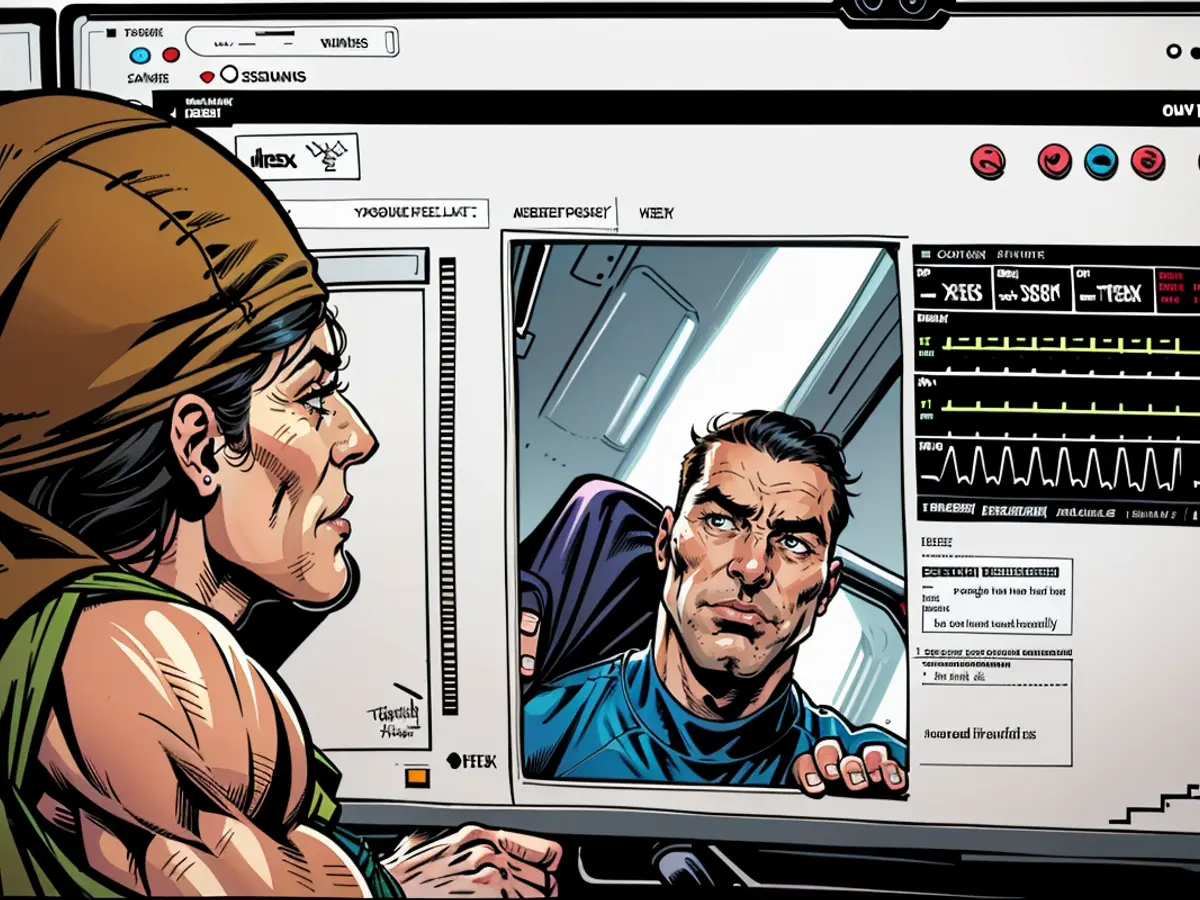Telemedicine - Tele doctor should come covered in Rhineland-Palatinate
Rural structured Rhineland-Palatinate is the first federal state to introduce tele-paramedics nationwide. Paramedics can then call in doctors over a special device during their rescue missions and follow their instructions. "We want to protect the valuable resource of a doctor," said Interior Minister Michael Ebling (SPD) in an interview with the German Press Agency in Mainz.
According to SWR research, thousands of people in Germany could be saved every year if emergency care were better organized. Whether a patient survives after a cardiac arrest depends on their location. In Rhineland-Palatinate, out of at least 2,700 reanimated patients per year, only about 370 survived, according to the broadcaster.
SWR: Eight minutes save the rescuers in no district
Experts recommend that rescuers be on site in 80% of cases within eight minutes. In Rhineland-Palatinate, this was not achieved by any rescue service in 2022. The best performance was by the Bad Kreuznach district with 54.84%, followed by Rheinhessen with 49.2%. In the Ludwigshafen district, the first responder was present in 45.26% of all cases, in Kaiserslautern in 37.46%, and in the South Palatinate in 35.91%. The worst performers were Trier (29.65%), Montabaur (27.67%), and Koblenz (27.53%).
There are several reasons why the medical recommendation cannot be met in the country, according to the SWR report. Long distances, traffic jams, and construction sites, as well as personnel shortages, were named as examples.
Tele-paramedics can be quickly called in when seconds count
Paramedics are often on the road with insane time consumption across the country, said Ebling. With the additional tele-paramedic service, they can be quickly called in and tell the paramedics what to examine, administer, or do. "The paramedic can sit anywhere, there just need to be enough of them for the entire area."
"Tele-paramedics can also call in other specialists, such as for example a lung specialist," added the Interior Minister. The next step towards a nationwide offer is expected to take place in the second half of 2024. The experiences with the pilot project since 2023 at the BG Unfallklinik in Ludwigshafen have been consistently positive. First, Trier is expected to join. Talks are already underway with the University Hospital in Mainz, the Bundeswehr Central Hospital in Koblenz, and the Westpfalz Clinic in Kaiserslautern.
Start of the pilot project one year ago in Ludwigshafen
"The tele-paramedic is supposed to supplement," Ebling had said roughly one year ago at the start of the pilot project in Ludwigshafen. "Paramedics are on site with their eyes, ears, and hands, the tele-paramedic supports from the emergency medical center with professional assistance, when every second counts." Experiences from other federal states show that doctor's stations can be relieved in this way - and doctors can then be there where it is most urgent.
A so-called telemedical medical evaluation could save many patients unnecessary hospital transports to hospitals. This relieves emergency departments at the same time.
- The pilot project for tele-paramedics was initially implemented in Ludwigshafen, Rhineland-Palatinate, a year ago, as announced by Interior Minister Michael Ebling.
- Ebling mentioned that the tele-paramedic is designed to supplement, not replace, the work of paramedics at the scene, providing professional assistance when every second matters.
- In an interview with the German Press Agency in Mainz, Ebling emphasized the importance of protecting the valuable resource of doctors during emergency situations.
- According to SWR research, better organization of emergency care could save thousands of lives annually in Germany, and the success rate in surviving after cardiac arrest varies greatly depending on location.
- In Rhineland-Palatinate, out of approximately 2,700 reanimated patients per year, only about 370 survive, which is a concern for local authorities.
- Tele-paramedics can be quickly called in using a special device during rescue missions, enabling paramedics to follow the doctor's instructions directly from the emergency medical center.
- If a patient requires a specialist, tele-paramedics have the ability to bring in experts, such as a lung specialist, to provide additional guidance during the emergency response.
- In Bad Kreuznach, Rhineland-Palatinate, the best performance was recorded in terms of rescue services arriving within eight minutes, followed closely by Rheinhessen.
- Trier, Koblenz, Ludwigshafen, and other regions in Rhineland-Palatinate are currently in discussions with local hospitals and medical centers to implement the tele-paramedic service nationwide by the second half of 2024.








